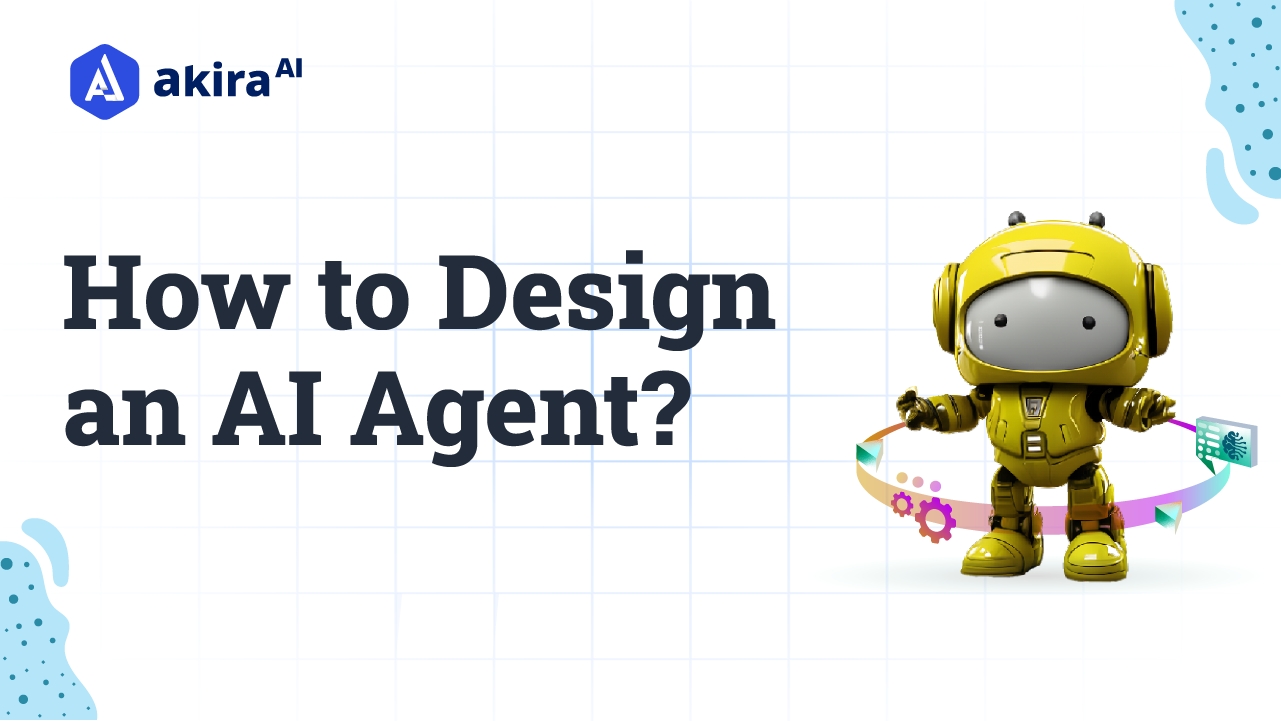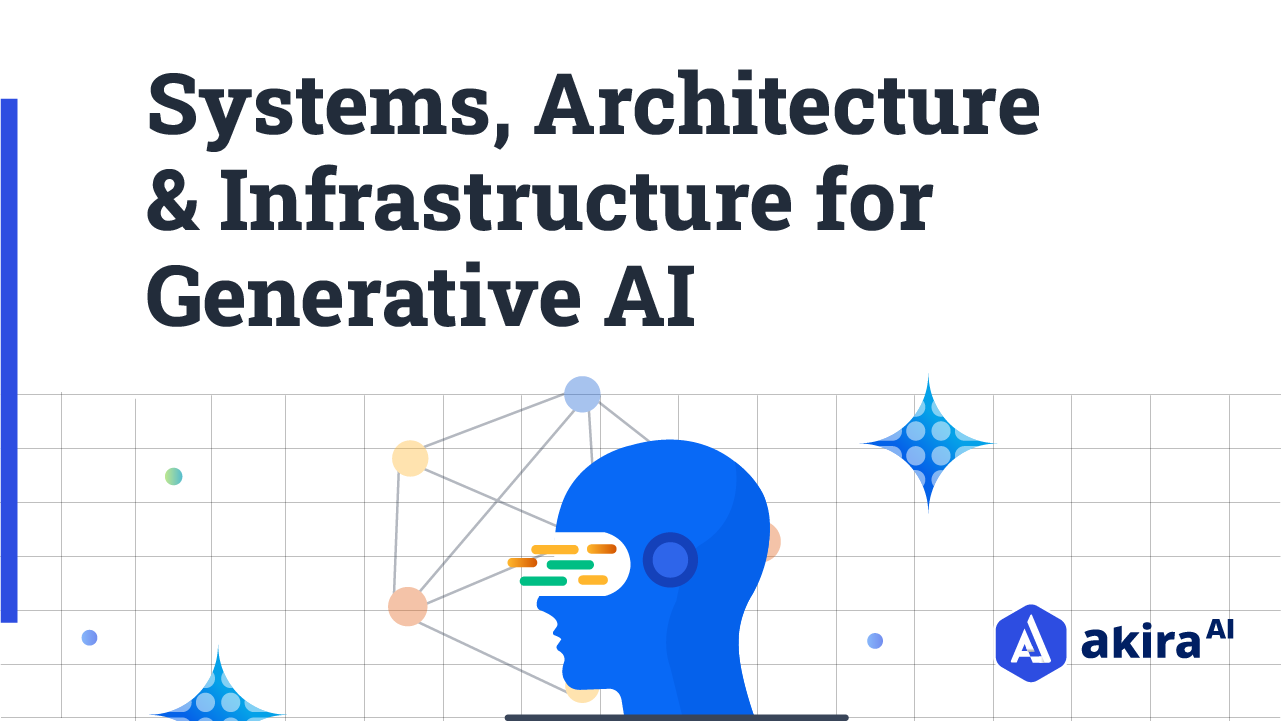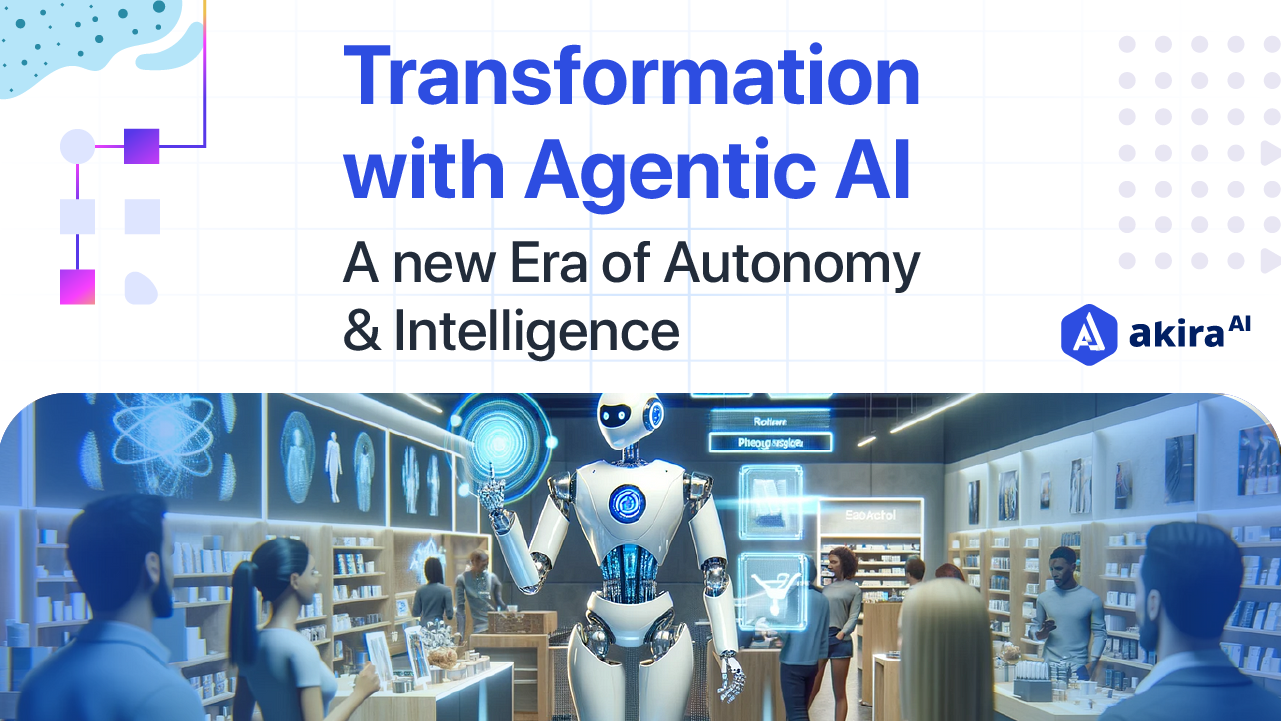Introduction
In the swiftly changing world of Artificial Intelligence, agentic AI is making a profound impact on the field. This advanced form of AI marks a departure from traditional systems that operate within strict parameters, ushering in a new era of autonomy, intelligence, and interactivity in business operations. Let's explore how agentic AI reshapes enterprise workflows, propelling industries towards unprecedented efficiency and innovation.
An Overview of Agentic AI
Agentic AI signifies a paradigm shift in the realm of artificial intelligence. Moving beyond task-specific algorithms, it adopts a holistic approach, enabling systems to act as agents capable of understanding, reasoning, and executing tasks across varied enterprise environments with minimal human oversight. This leap towards autonomy and interactive intelligence is redefining the capabilities of AI in the enterprise sector. The integration of agentic AI is revolutionizing industries by streamlining processes, enhancing decision-making abilities, and improving overall operational efficiency. By adapting to dynamic environments and learning from experiences, these intelligent systems are driving unprecedented innovation and productivity. As organizations continue to harness the power of agentic AI, the possibilities for growth and advancement are limitless.
Core Characteristics of Agentic AI
The core attributes of agentic AI include:
-
Autonomy enables systems to initiate actions based on set objectives.
-
Adaptability, allowing for strategy adjustments in dynamic environments.
-
Intelligence, going beyond mere data processing to make decisions aligned with business goals.
Agentic AI systems are designed to function independently, utilizing advanced algorithms and machine learning capabilities to drive decision-making processes. By continuously analyzing data, these systems can identify patterns, predict outcomes, and optimize strategies to achieve optimal results. In essence, agentic AI represents a significant advancement in artificial intelligence, allowing businesses to enhance efficiency, productivity, and overall performance.
Transforming Enterprise Workflows
Agentic AI's impact on enterprise workflows is profound. It automates complex tasks that typically require human intervention, enhancing efficiency, reducing errors, and freeing human resources for strategic endeavours. This integration fosters a partnership between AI agents and human workers, leveraging each other's strengths for optimal outcomes. This symbiotic relationship between AI and humans is revolutionizing businesses' operations, paving the way for greater productivity, competitiveness, and innovation in the digital age.As AI advances, its potential to revolutionize enterprise workflows and enhance success will only increase.
Impact of Agentic AI on Industry
Across various sectors, agentic AI is revolutionizing business operations by improving process automation in routine tasks and areas demanding adaptive reasoning and decision-making. Industries such as manufacturing, healthcare, and finance are experiencing transformative changes, with AI agents managing and analyzing vast data streams in real time. This leads to increased operational efficiency, reduced costs, and elevated customer satisfaction and retention through enhanced product and service personalization. In addition, the integration of agentic AI has sparked discussions about ethics, privacy, and the future of work. As AI systems become more autonomous and sophisticated, concerns about data security, algorithmic bias, and job displacement have come to the forefront. Companies are now challenged to strike a balance between leveraging the benefits of AI technology and addressing these ethical considerations to ensure responsible and sustainable AI deployment.
Adoption of Agentic AI in Industry
The drive to adopt agentic AI stems from its potential to enhance efficiency and foster innovation significantly. By automating complex processes, businesses can concentrate on strategic growth and creativity. Moreover, agentic AI improves customer engagement and service quality, providing a competitive edge in today's market. Furthermore, the integration of agentic AI into various industries is reshaping the workforce landscape, leading to a shift in job roles and skill requirements. As organizations navigate this transformation, upskilling employees and fostering a continuous learning culture are imperative to stay relevant in a rapidly evolving technological environment. The synergy between human expertise and AI capabilities is critical to unlocking new opportunities and driving sustainable growth in the digital age.
Tailoring Enterprise Agentic AI Systems
Customization is critical to maximizing agentic AI's effectiveness tical. This involves integrating AI systems with business databases and applications, incorporating extensive knowledge resources, customizing models for specific organizational roles, and modifying system responses to align with organizational goals. These adaptations ensure that AI actions are consistent with business strategies and communication standards.
Industry-Specific Applications
Agentic AI finds applications across various enterprise sectors. It automates routine tech support tasks in IT, streamlines HR processes, provides personalized customer service, automates data entry in finance and accounting, optimizes supply chain management, and personalizes marketing and sales interactions. These applications demonstrate agentic AI's potential to add significant business value.
Benefits and Challenges of Implementing Agentic AI
Implementing agentic AI offers numerous benefits, including increased productivity, enhanced decision-making, and cost efficiency. However, it also brings challenges like ensuring AI system security, managing data privacy, and maintaining transparency in AI-driven decisions.
Addressing these challenges requires robust governance frameworks to ensure ethical and operational compliance.
Example of Agentic AI in Healthcare
Consider the healthcare industry, where agentic AI can significantly redefine patient care and administrative efficiency. A practical example is an AI-powered diagnostic system that analyzes medical images to identify diseases - such as tumours in radiology scans - and learns from new cases, adapting its diagnostic criteria based on the latest medical research and outcomes of previous diagnoses.
This system is an intelligent agent that autonomously schedules follow-up tests or consultations based on its findings without direct human intervention. It can prioritize patient cases based on the severity and urgency detected in the scans, ensuring that high-risk patients receive immediate attention. Moreover, it integrates with the hospital's electronic health records (EHR) system to provide a comprehensive view of the patient's history, enhancing the decision-making process with a broader context.
How This Example Illustrates the Core Characteristics of Agentic AI:
-
Autonomy: The system initiates actions, like scheduling follow-up tests, based on its analysis and set objectives, operating with minimal human oversight.
-
Adaptability: It adjusts its diagnostic strategies as it encounters new data or as medical knowledge evolves, ensuring its reasoning stays relevant and accurate.
-
Intelligence: Beyond processing data, the system makes decisions that align to improve patient outcomes, such as prioritizing cases and recommending specific follow-up procedures.
This example encapsulates the transformative potential of agentic AI in automating complex tasks, enhancing operational efficiency, and supporting human workers in making informed decisions, thus propelling industries like healthcare towards unprecedented innovation and efficiency.
Conclusion: The Future is Agentic AI
As the evolution of agentic AI continues, its role in enterprises will grow more significant. Beyond enhancing existing systems, it promises a radical transformation of how businesses operate, ensuring a seamless and productive interaction between humans and machines. The future with agentic AI holds the potential for unparalleled innovation, efficiency, and competitiveness across all sectors. It's imperative for organizations to embrace this transformative technology responsibly, addressing challenges such as data security, ethical considerations, and workforce adaptability. By doing so, they can unlock new levels of success and stay at the forefront of the digital revolution.


